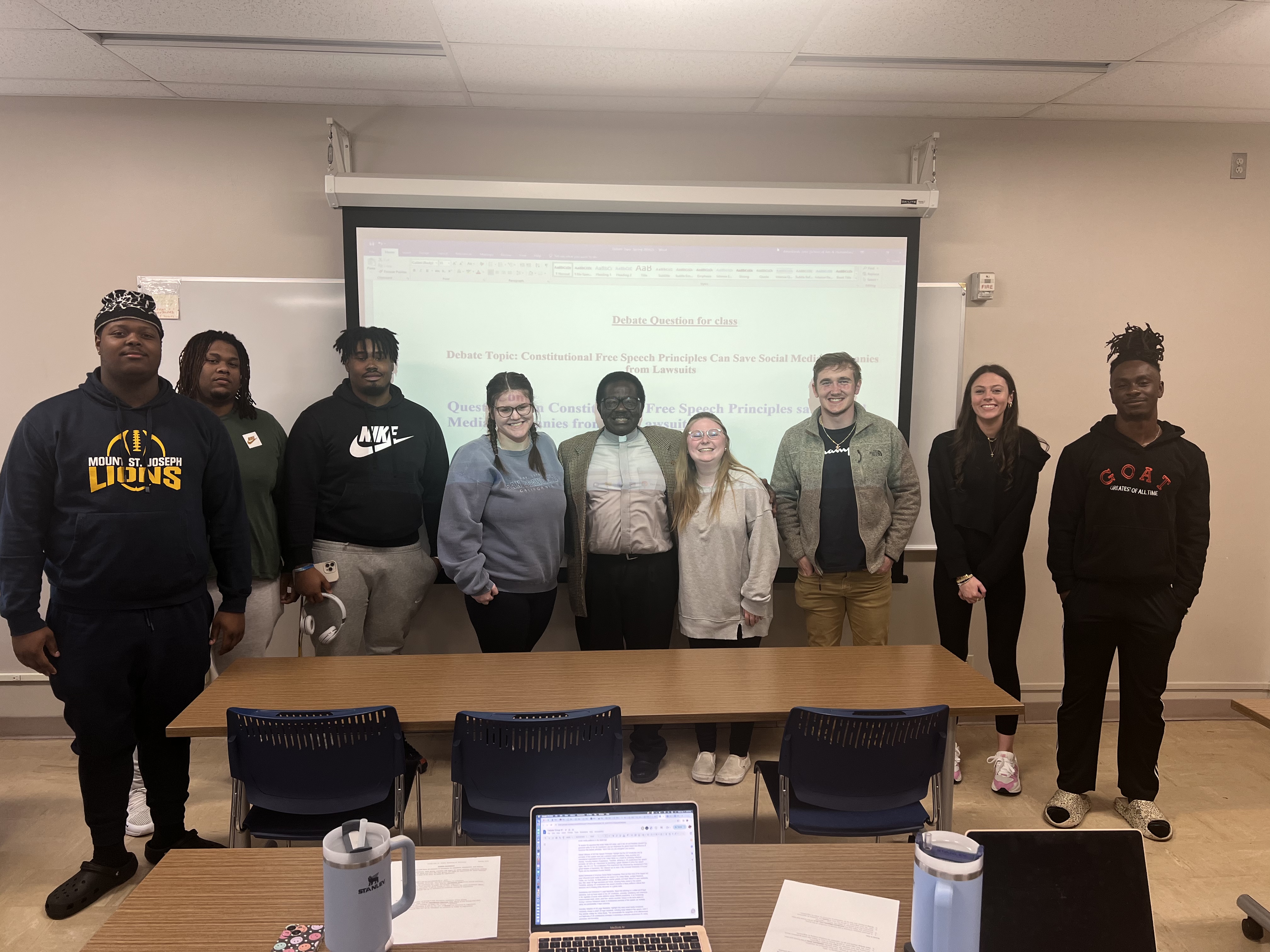Debate Question: Can Constitutional Free Speech Principles Save Social Media Companies from Lawsuits?

Department of Communication & New Media Studies
On April 3, 2024, the COM 320:01 (Public Speaking and Advocacy class engaged in a lively debate about whether Constitutional Free Speech Principles can save Social Media Companies from Lawsuits. Rev. John Amankwah, the professor who teaches the course had prepared the students through research to debate the topic. The class was divided into two groups of five. After three weeks of preparation, the two groups entangled each other in an animated and vigorous deliberation by exposing both the weaknesses and strengths of our First Amendment right to speech especially on our speech act on the internet. Drawing both from scholarly opinions and other social media posts from congressional members, journalists, and other people, the students from both sides of the debate fought hard to win the day.
In one such exchange, one member of the Pro Group stated: “Social Media Companies are free from lawsuits, according to Section 230: Immunity of the Communications Decency Act.” The section 230 clause of the First Amendment right to free speech arose in 1990 when Cubby, Inc. accused CompuServe (CompuServe was one of the first computer companies in the country around 1990) of allowing defamatory content on one of its 150 discussion forums. The Section 230 clause states: “No provider or user of an interactive computer service shall be treated as the publisher or speaker of any information provided by another information content provider” (Section 230(c)(1). Thus, in the case brought by Cubby, Inc. against CompuServe, the federal court ruled that CompuServe could not be found liable and likened CompuServe to newsstands and libraries which are not liable for defamatory materials they carry.
The Con Group argued that social media companies should be held liable for defamatory posts on their platforms. The Group argued that social media companies should edit materials that are posted on their platforms to protect themselves and avoid being sued. One member of the Group argued vehemently that consumers should help protect social media companies by exercising accountability in what they post on the platforms. The debate was very engaging and the chair of the department, Dr. Lisa Crews was invited as a guest to the debate. She remarked that she had never seen students so engaged in class. The Con Group won the day!

